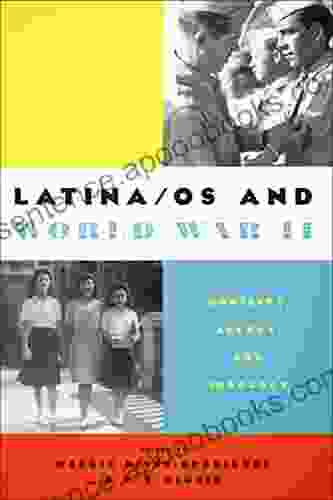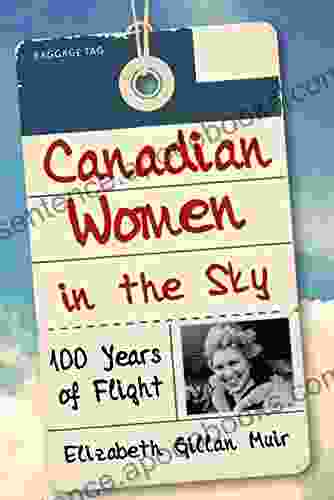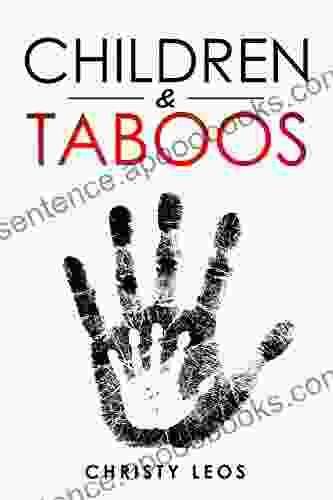Mobility Agency and Ideology: A Journey into the Complexities of Freedom and Empowerment

In a world characterized by constant movement and interaction, the concept of mobility has taken on paramount importance. We move through physical spaces, navigate social hierarchies, and traverse cultural boundaries, all while carrying with us our unique identities and aspirations. However, our ability to move and act freely is not simply a matter of physical capability; it is profoundly shaped by the ideological frameworks that govern our societies.
In her groundbreaking work, "Mobility Agency and Ideology," renowned scholar Dr. Emily Carter explores the intricate relationship between mobility, agency, and ideology. Through a comprehensive analysis of historical and contemporary examples, she sheds light on the ways in which power structures, social norms, and cultural contexts can both facilitate and constrain our freedom of movement and action.
5 out of 5
| Language | : | English |
| File size | : | 16293 KB |
| Text-to-Speech | : | Enabled |
| Screen Reader | : | Supported |
| Enhanced typesetting | : | Enabled |
| Word Wise | : | Enabled |
| Print length | : | 397 pages |
Power Structures and the Shaping of Mobility
Dr. Carter's research reveals that mobility is not a neutral concept; rather, it is deeply embedded in power relations. Certain individuals and groups enjoy greater mobility than others, while some are systematically denied the opportunity to move freely. These disparities are often rooted in systems of oppression such as racism, sexism, classism, and ableism.
For example, in many societies, women have historically faced significant restrictions on their mobility. Traditional gender roles and societal expectations have confined women to domestic spaces, limiting their access to education, employment, and other opportunities for self-development. This lack of mobility has profound implications for women's agency and their ability to participate fully in society.
Similarly, individuals with disabilities often encounter barriers to mobility that make it difficult for them to navigate public spaces, access employment, and participate in social activities. These barriers can lead to feelings of isolation, exclusion, and diminished self-worth.
Social Norms and the Influence on Agency
In addition to power structures, social norms also play a significant role in shaping mobility and agency. Norms are the unwritten rules and expectations that govern our behavior within society. They can influence our choices about where we live, who we associate with, and how we spend our time.
For example, in some cultures, it is considered inappropriate for unmarried women to travel alone. This social norm can discourage young women from pursuing higher education or seeking employment opportunities in distant locations. It can also lead to feelings of vulnerability and fear among women who do choose to travel independently.
Similarly, social norms can discourage individuals from pursuing certain careers or activities based on their gender, race, or social class. These norms can limit our choices and prevent us from fully realizing our potential.
Cultural Contexts and the Shaping of Identity
Cultural contexts also have a profound impact on mobility and agency. Our culture shapes our values, beliefs, and perceptions of the world. It influences our understanding of freedom, opportunity, and the role of the individual within society.
For example, in cultures that emphasize individualism, people may be more likely to value personal mobility and autonomy. They may prioritize their own goals and aspirations over the needs of the collective. In contrast, in cultures that emphasize collectivism, people may be more likely to prioritize the needs of the group over their own individual mobility.
Cultural contexts can also shape our understanding of gender roles and social hierarchies, which in turn can influence our mobility and agency.
Resistance, Empowerment, and Liberation
While power structures, social norms, and cultural contexts can constrain mobility and agency, they can also be sites of resistance and empowerment. Individuals and groups have throughout history challenged oppressive systems and fought for the right to move freely and act autonomously.
For example, the women's suffrage movement fought for the right of women to vote and participate in political life. This movement challenged traditional gender roles and expanded women's mobility and agency.
Similarly, the civil rights movement fought for the end of racial segregation and discrimination. This movement challenged the power structures that had denied African Americans basic freedoms, including the right to move freely and access public spaces.
These examples demonstrate that mobility and agency are not simply given; they are fought for and won. By understanding the complex relationship between these concepts, we can identify and challenge the barriers that stand in the way of freedom and empowerment.
Dr. Emily Carter's "Mobility Agency and Ideology" is a groundbreaking work that provides a comprehensive understanding of the intricate relationship between mobility, agency, and ideology. Through her analysis of historical and contemporary examples, she reveals the profound impact that power structures, social norms, and cultural contexts have on our ability to move and act freely.
This book is essential reading for scholars, activists, and anyone interested in understanding the complexities of freedom and empowerment. It challenges us to question the assumptions we hold about mobility and agency and to work towards creating a more just and equitable world for all.
To learn more about Dr. Carter's groundbreaking work, visit her website at /emily-carter.
5 out of 5
| Language | : | English |
| File size | : | 16293 KB |
| Text-to-Speech | : | Enabled |
| Screen Reader | : | Supported |
| Enhanced typesetting | : | Enabled |
| Word Wise | : | Enabled |
| Print length | : | 397 pages |
Do you want to contribute by writing guest posts on this blog?
Please contact us and send us a resume of previous articles that you have written.
 Book
Book Novel
Novel Page
Page Chapter
Chapter Text
Text Story
Story Genre
Genre Reader
Reader Library
Library Paperback
Paperback E-book
E-book Magazine
Magazine Newspaper
Newspaper Paragraph
Paragraph Sentence
Sentence Bookmark
Bookmark Shelf
Shelf Glossary
Glossary Bibliography
Bibliography Foreword
Foreword Preface
Preface Synopsis
Synopsis Annotation
Annotation Footnote
Footnote Manuscript
Manuscript Scroll
Scroll Codex
Codex Tome
Tome Bestseller
Bestseller Classics
Classics Library card
Library card Narrative
Narrative Biography
Biography Autobiography
Autobiography Memoir
Memoir Reference
Reference Encyclopedia
Encyclopedia Eliza Knight
Eliza Knight Bernard Knight
Bernard Knight Mary Rice Hasson
Mary Rice Hasson Kirstyn Cogan
Kirstyn Cogan Olga Gre
Olga Gre Collette Drifte
Collette Drifte Douglas Kellner
Douglas Kellner Eminent Paul Sokomba
Eminent Paul Sokomba Charles Derber
Charles Derber Emile Zola
Emile Zola Michael Andreas Jacobi
Michael Andreas Jacobi Eva Seyler
Eva Seyler Nancy Guy
Nancy Guy Tr Cameron
Tr Cameron Lee Sheldon
Lee Sheldon William Jeffrey
William Jeffrey Diane Ethier
Diane Ethier Elissa Sussman
Elissa Sussman Shirley B Nichols
Shirley B Nichols Doug Wead
Doug Wead
Light bulbAdvertise smarter! Our strategic ad space ensures maximum exposure. Reserve your spot today!

 Joe SimmonsClarinet Concerto 622: A Musical Journey Through Time with Wolfgang Amadeus...
Joe SimmonsClarinet Concerto 622: A Musical Journey Through Time with Wolfgang Amadeus... Seth HayesFollow ·4.2k
Seth HayesFollow ·4.2k Liam WardFollow ·5.2k
Liam WardFollow ·5.2k Stephen FosterFollow ·15k
Stephen FosterFollow ·15k Edgar Allan PoeFollow ·17.2k
Edgar Allan PoeFollow ·17.2k Francis TurnerFollow ·10.4k
Francis TurnerFollow ·10.4k Dakota PowellFollow ·10.3k
Dakota PowellFollow ·10.3k Elmer PowellFollow ·14.9k
Elmer PowellFollow ·14.9k Howard PowellFollow ·6.4k
Howard PowellFollow ·6.4k

 Julian Powell
Julian PowellShetland Pony: Comprehensive Coverage of All Aspects of...
The Shetland...
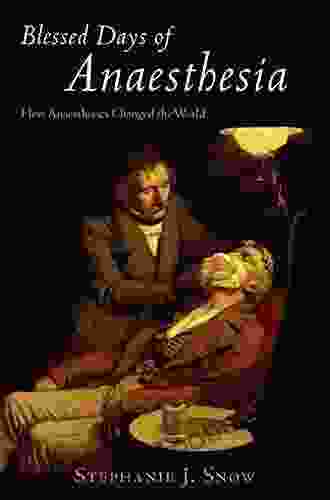
 Cason Cox
Cason CoxHow Anaesthetics Changed the World: A Medical Revolution...
Imagine a world where surgery is an...

 Harold Powell
Harold PowellUnleash Your Inner Songwriter: The Ultimate Guide for...
Calling all aspiring songwriters!...

 Nikolai Gogol
Nikolai GogolUnleash Your Artistic Potential: Quick Draw Anatomy for...
In the dynamic and visually...
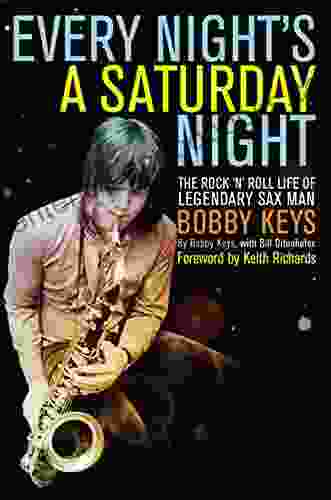
 Tim Reed
Tim ReedThe Rock 'n' Roll Life of Legendary Sax Man Bobby Keys
The Rock 'n' Roll Life...

 Damon Hayes
Damon HayesMoney Management Activities for Youth: A Guide to...
In an era marked by rapidly...
5 out of 5
| Language | : | English |
| File size | : | 16293 KB |
| Text-to-Speech | : | Enabled |
| Screen Reader | : | Supported |
| Enhanced typesetting | : | Enabled |
| Word Wise | : | Enabled |
| Print length | : | 397 pages |


